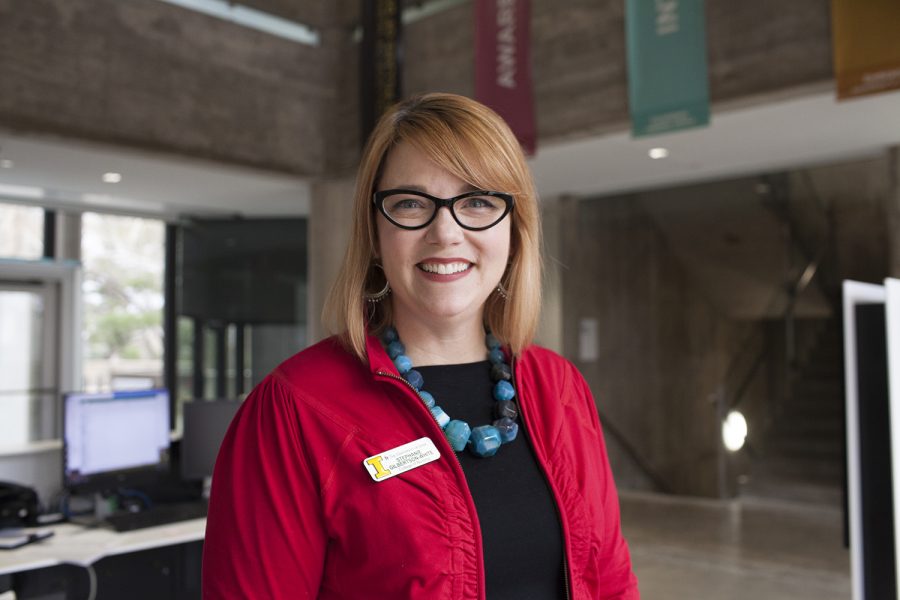UI nursing professor creates online program for rural cancer patients
Researchers in the College of Nursing have created an online program called OASIS for the advanced cancer patients in rural areas to work on methods to manage their symptoms and meet with interventionists.
UI assistant professor of nursing, Stephanie Gilbertson-White, is pictured as a developer of an online program for rural cancer patients with advanced cancer.
April 2, 2019
Access to the Holden Comprehensive Cancer Center can make it easier to manage the symptoms patients experience with advanced-stage cancer. However, advanced-cancer patients from rural areas may not receive their treatment from an academic cancer center; they receive treatment in their local community.
Over the past three years, University of Iowa Assistant Professor of nursing Stephanie Gilbertson-White has done research on rural cancer patients and their access to health care. Through her research, she’s developed a web-based intervention program called Oncology Associated Symptoms & Individualized Strategies.
Gilbertson-White created OASIS to bring the expertise at the UI to people in rural communities who may not have treatment options available to them, she said.
OASIS consists of a symptom library for patients to read about common symptoms, a strategy library with common ways people manage their cancer symptoms, and a diary component for patients to write about their symptoms and the way they’re managing them, Gilbertson-White said.
Patients involved with the research also meet with an interventionist once a week for eight to 12 weeks over an online video conference to discuss managing their symptoms, Gilbertson-White said. The interventionists for the research are nursing students from the UI and clinics across the state, she said.
RELATED: UI researchers develop a mobile simulation health-care truck
“If you can think about our website, [patients] might choose to do exercise or increase their activity to help control cancer-related fatigue,” Gilbertson-White said. “But the content that you put on a website is pretty general. The nurse helps really tailor it and make it unique to their situation.”
In order to find patients interested in participating in Gilbertson-White’s research, UI Clinical Assistant Professor Praveen Vikas asked his patients from rural areas if they were interested. Vikas explained what was being done in the research and how it may help them and how it may help patients in the future, he said.
Cancer patients in rural areas don’t always have access to supportive care, such as evaluations of their symptoms and other care that can better their quality of life, Vikas said.
There are fewer physicians and clinicians available in rural areas. Meeting with the interventionists though the OASIS program can help fill the gap for the care patients need but may not get, he said.
Meeting weekly with the nurses can empower the patients participating in the program to learn how to manage their symptoms and improve how they live, Vikas said.
RELATED: Rural hospital benefits from UIHC telemedicine
“We have these large cancer centers, but patients are still coming from small, rural areas,” Vikas said. “There is definitely a gap in the treatment they receive in their local areas.”
One of the interventionists, UI nursing student Seyedehtanaz Saeidzadeh, meets with the patients to discuss their symptoms, how they’re specifically managing them, and what improvements they’ve noticed, Saeidzadeh said.
A typical meeting with patients includes discussing how their week went, the specific symptoms they experienced, and how they implemented the strategies to manage their symptoms, Saeidzadeh said.
“It’s really up to them, because the idea of self-management and symptom management is to help them manage everything they want to do,” Saeidzadeh said.






